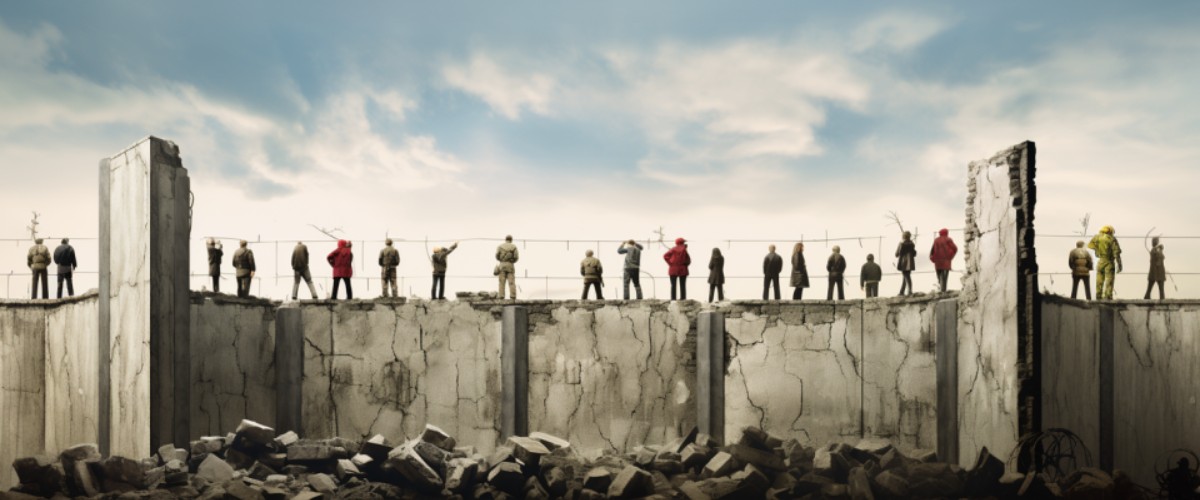A symbol of division, not only for a city or a country but for an entire world, crumbled after 28 years, igniting a series of events that would reshape the global landscape. The fall of the Berlin Wall in 1989 stands prominently as a pivotal moment in history, facilitating the end of the Cold War and representing a significant stride towards global reunification.
Background: Prelude to the Fall
- Era of Division
- The wall’s construction in 1961 created a physical and ideological divide between East and West Berlin.
- East Germany (GDR) and its Soviet influence were separated from West Germany (FRG), which was allied with the USA and other Western nations.
- Rising Tensions
- Over the years, the stark contrast in living conditions and political ideologies between the East and the West became increasingly evident.
- Numerous attempts of East Berliners trying to defect to the West exemplified the desperation and discontent within the GDR.
- Key Figures
- Ronald Reagan, the US president, famously implored, “Mr. Gorbachev, tear down this wall!” in 1987.
- Mikhail Gorbachev, the Soviet leader, initiated policies (glasnost and perestroika) aimed at reforming the Soviet Union.
Major Happenings: The Wall Crumbles
- Miscommunication
- On 9th November 1989, East German spokesperson Günter Schabowski mistakenly announced that GDR citizens could cross into the West immediately.
- Surge of Citizens
- Massive crowds gathered, overpowering border guards and crossing into West Berlin.
- Physical Demolition
- Citizens from both sides began physically dismantling the wall, using sledgehammers and pickaxes.
Immediate Outcomes: A Unified Horizon
- Joy and Chaos
- Elation swept through Germany as families and friends, long separated, were reunited.
- Political Repercussions
- The collapse of the wall triggered the toppling of communist regimes across Eastern Europe.
- Germany Reunited
- Within less than a year, on 3rd October 1990, East and West Germany were officially reunified.
Long-term Impact: A World Transformed
- End of the Cold War
- The fall of the wall and the subsequent dissolution of the Soviet Union in 1991 signalled the end of the Cold War.
- Expansion of the European Union
- Several former Soviet bloc countries eventually joined the European Union and NATO, significantly altering the political dynamics of Europe.
- Economic Development
- Germany emerged as a significant player on the global stage, especially within the European Union, driving economic development and establishing itself as a key influencer in international affairs.
Conclusion: An Enduring Legacy
The fall of the Berlin Wall continues to resonate as a powerful symbol of resistance against oppressive regimes and the indefatigable human yearning for freedom and unity. Not merely a historical event, it underscores the vitality of solidarity, the triumph of collective action, and bears testimony to the potential of spontaneous, grassroots movements in effecting monumental change. This moment is immortalised in history, providing insight and inspiration to subsequent generations facing their own societal challenges, demonstrating that walls, both literal and metaphorical, can indeed be toppled.








